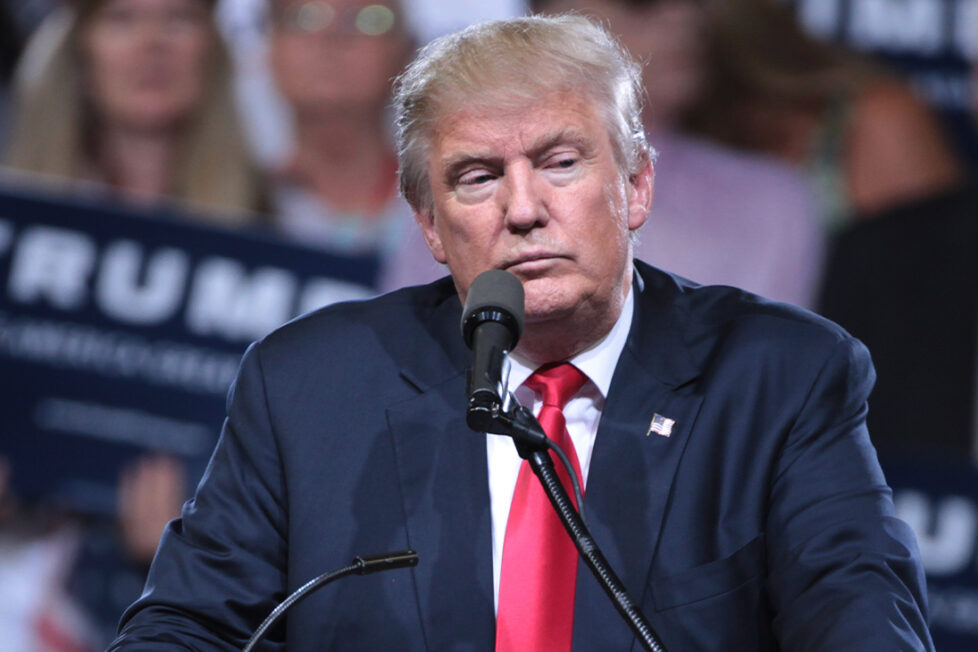Judge rules Trump committed fraud in real estate empire’s rise


By: Stacy M. Brown / NNPA
In a decision reverberating through the legal and political spheres, New York Judge Arthur Engoron ruled on Tuesday that former President Donald Trump engaged in fraudulent activities for years during the ascent of his real estate empire.
Letitia James, the attorney general of New York, filed a civil lawsuit against the Trump Organization, and the jury found that Trump and his company orchestrated a widespread scheme to deceive financial institutions, insurers, and other stakeholders of millions of dollars. The deception involved inflating the value of assets and exaggerating Trump’s net worth on official documents, which were instrumental in securing financing and executing lucrative deals.
For example, in financial documents, Trump lied about the size and value of his three-story penthouse apartment in Trump Tower, claiming that it was nearly three times its actual size with a value of $327 million. Trump also lied about the value of his Mar-a-Largo estate, inflating its value by as much as 2,300%.
[SCROLL BREAK!!! Bayou Beat News can also be found in PRINT at a store near you. Click the link below to check out our E-Edition!]
Judge Engoron’s ruling came just days before the commencement of the financial fraud trial brought against the president by AG James. The New York state court of appeals rejected a motion by Trump’s lawyers to delay the start of the trial, which is set for October 2. Judge Engoron will also preside over the financial fraud trial.
During the next phase, Engoron will decide on several additional key issues, including Attorney General James’ request for $250 million in penalties and a ban on Trump’s business operations in New York. Engoron has noted that the trial’s duration might extend into December.
The ruling represents a profound repudiation of Trump’s carefully curated public persona as a wealthy and astute real estate magnate who successfully transitioned into a political figure. In addition to the former president, his two eldest sons and other Trump Organization exectives’ activities were called into question.
Beyond the realm of mere self-promotion, Engoron determined that Trump, along with his company and key executives, consistently disseminated false information on their annual financial statements. According to the judge, these actions resulted in tangible benefits such as favorable loan terms and reduced insurance premiums, thereby crossing the threshold of legality. The judge dismissed Trump’s claim that a disclaimer on the financial statements absolved him of wrongdoing.
Manhattan prosecutors contemplated pursuing criminal charges for the same misconduct but ultimately opted not to, leaving Attorney General James to bring forth the civil lawsuit and seek penalties that could disrupt the Trump family’s business activities within the state.
Engoron’s ruling, rendered during the summary judgment phase of the case, addresses the central allegation in James’ lawsuit. However, six other claims still await resolution, with Engoron scheduled to preside over a non-jury trial beginning on October 2, during which he will determine both the merits of those claims and any potential penalties.
Trump’s legal team requested the dismissal of the case, a request that was denied by the judge. Their argument rested on the premise that James lacked the legal authority to initiate the lawsuit due to the absence of evidence showing harm to the public from Trump’s actions. Additionally, they argued that the statute of limitations barred a number of the lawsuit’s allegations.
“The documents here clearly contain fraudulent valuations that defendants used in business,” Engoron wrote.
Engoron’s ruling Tuesday found that Trump, his adult sons and his businesses were liable for that fraud and rescinded some of Trump’s business licenses in the state, potentially impacting many of the Trump Organization’s marquee properties.
